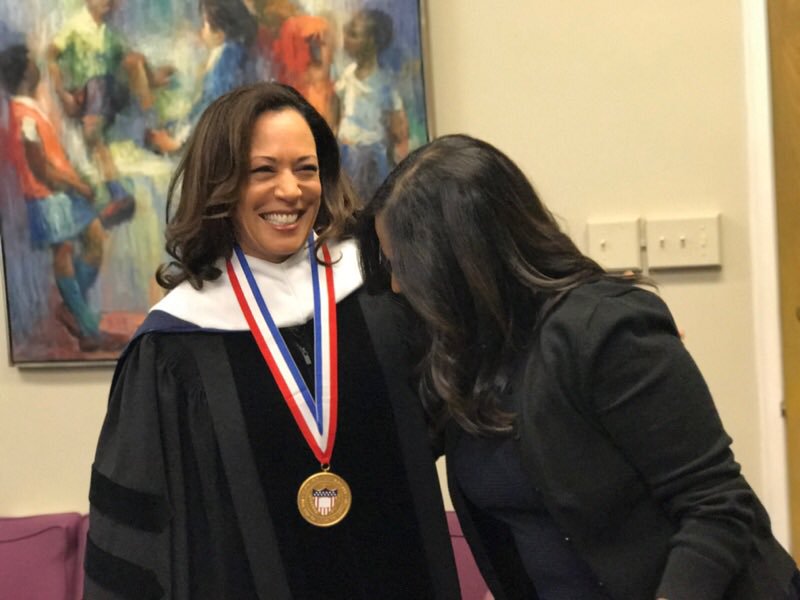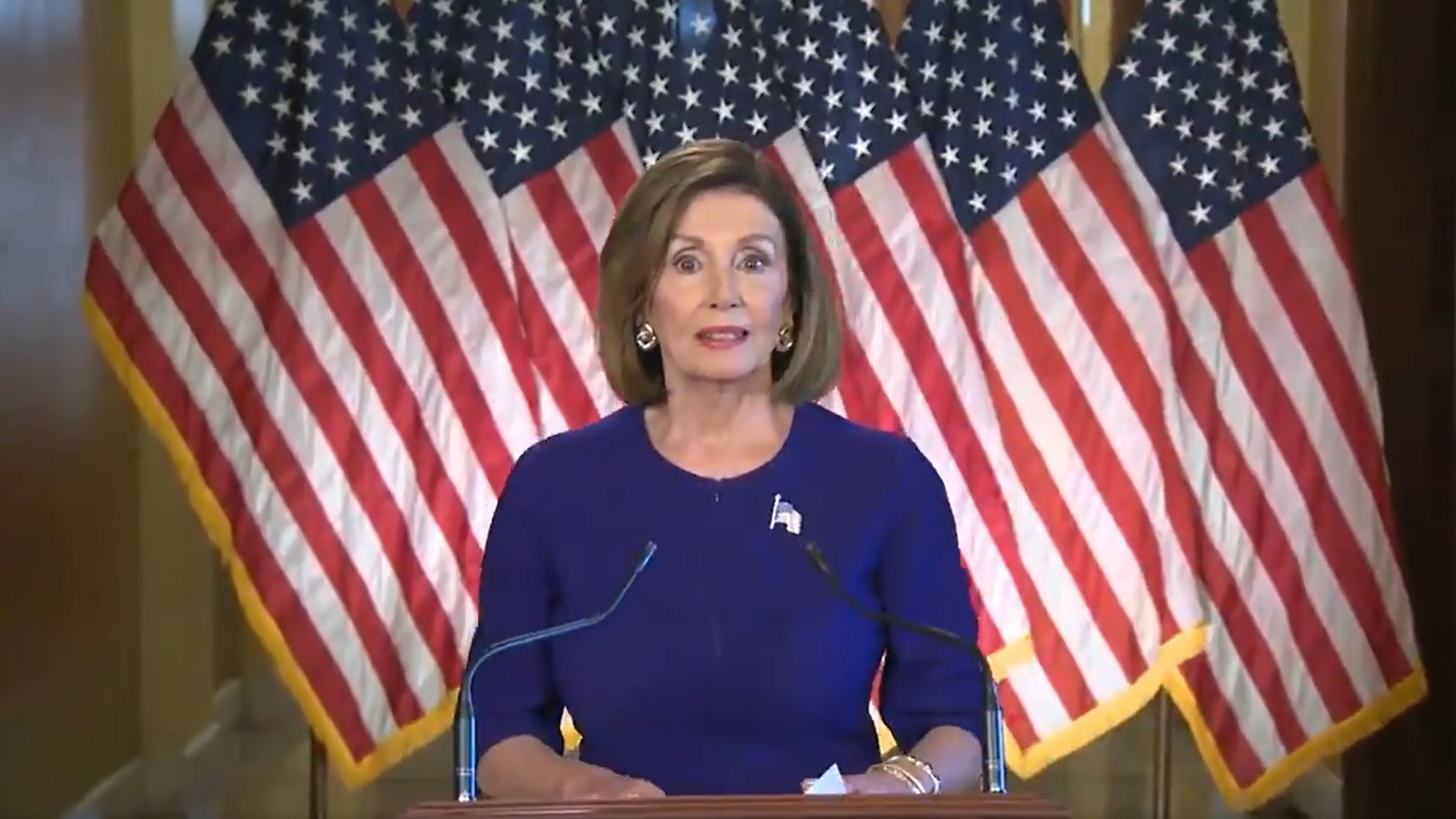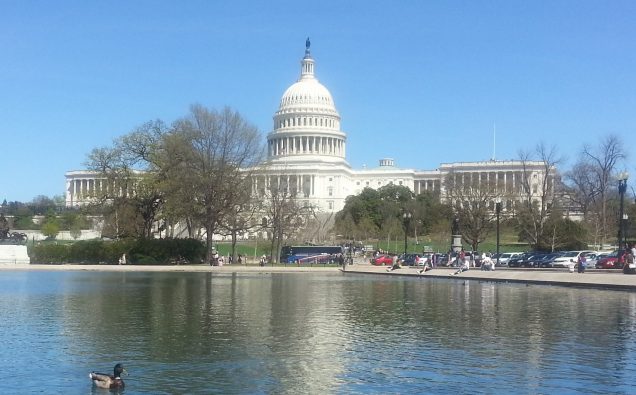
The election of Kamala Harris as vice president of the United States has been hailed as a great milestone towards women’s rise to the high political office.
Vice President Kamala Harris is constitutionally also now the President of the Senate, where she can cast a decisive vote and influence policymaking like no other woman in the past.
In another unprecedented sign of women’s political elevation, women now head both chambers of Congress, which in January experienced a rare scene of violence in a setback to America’s image as democracy. Now longtime Democratic leader and a voice for women’s political advancement Nancy Pelosi is Speaker of the House of Representatives, while Kamila Harris presides the Senate.
While these are truly remarkable developments, it has taken the United States around two and a half centuries to reach these milestones, a time that speaks of the struggles for women’s presence in the highest level of decision-making.
But the November 2020 election has resulted in the largest representation of women in both chambers – a great celebration for American democracy and a massive step toward their presence proportionate to their population share.
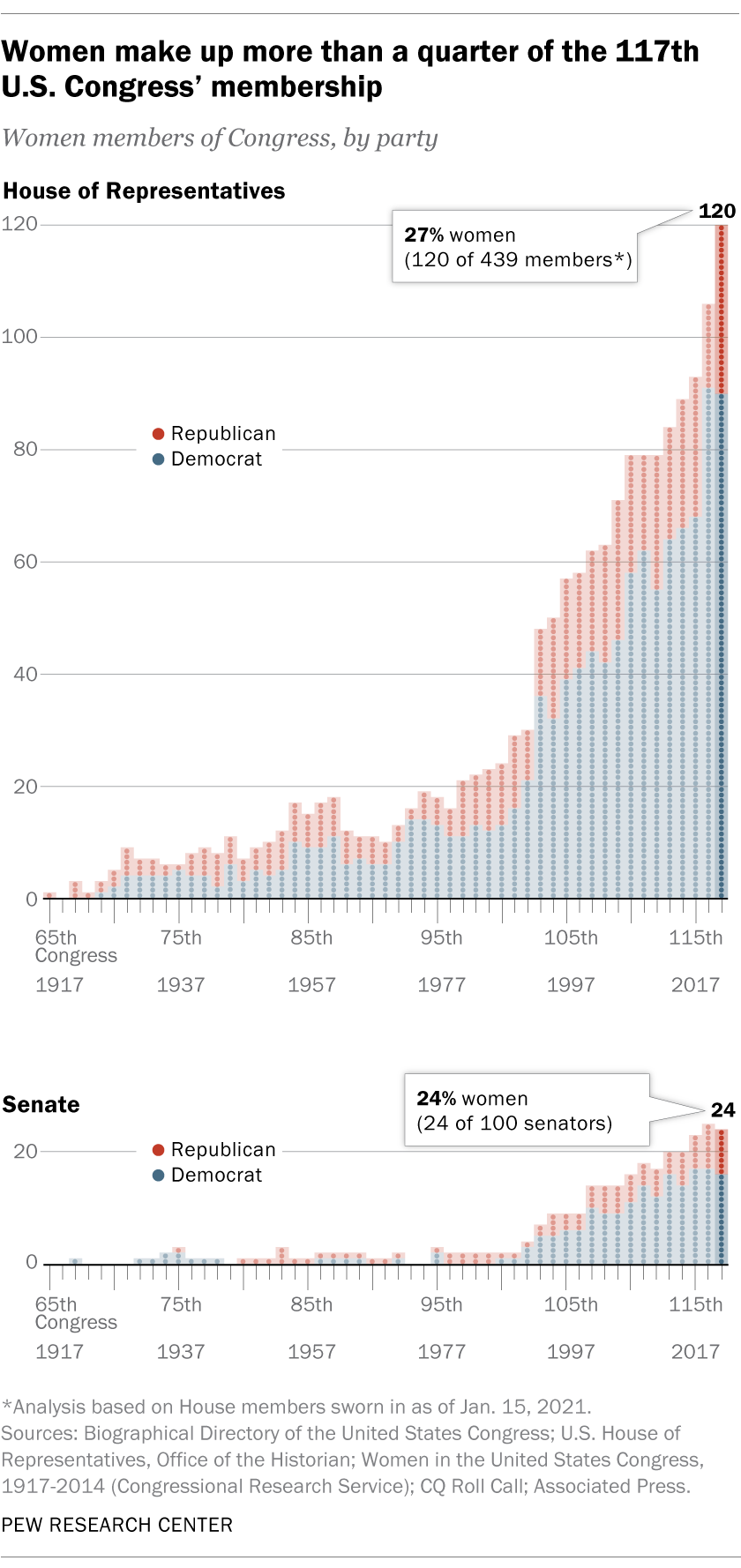
A recent Pew Research report says that women make up just over a quarter of all members of the 117th Congress.
In the House of Representatives and the Senate, women now have 144 of 539 seats, signifying a 50% increase from the 96 women who were serving in the 112th Congress a decade ago.
Yet women’s representation remains far below their population share. In the House of Representatives, a record 120 women are serving as elected legislators while in the Senate women hold 24 of 100 seats.
Before these high-profile advancements in the United States, several developing countries had women as presidents and prime ministers of the countries. In Pakistan, Benazir Bhutto was the first elected prime minister of the Muslim majority countries. Yet we all have seen it takes more than symbolism to guarantee gender parity in the corridors of power.
The last few years have shown some hopeful trends in many countries but a new report says the goal of parity in the elected legislatures is still way off for women.
The proportion of women parliamentarians worldwide reached more than 25 percent last year– a historic first, the Inter-Parliamentary Union said in its latest Women in Parliament edition.
“It gives me great pleasure to announce that for the first time, women now account for more than a quarter of parliamentarians worldwide”, IPU Secretary-General Martin Chungong said in launching its latest Women in Parliament report at the UN Office in Geneva.
“The global average of women in parliament has now reached 25.5 percent.”
The global organization of national parliaments, which is a UN partner, has tracked women’s participation in parliament for decades, allowing it to measure progress and setbacks.
“While we celebrate and welcome this all-time high, we feel that progress is painstakingly, or even excruciatingly, slow”, Mr. Chungong said. “At the current rate, it will take another 50 years before we can achieve gender parity in parliament. And of course, we all agree that this is not tenable, it’s not acceptable”.
Last year’s elections saw the global proportion of women in parliament increase by 0.6 points when compared with the previous year.
Globally, 58 women held speaker positions in 2020, an increase of one from the previous year, representing a global average of 20.9 percent. Women held speaker positions in all regions of the world in 2020, with regional variations.
The IPU publishes a report annually to coincide with International Women’s Day on 8 March.
The IPU report shows though some progress has been steady over the past few years, it is still far from the goal of parity. As at 1 January 2021, women accounted for 50 percent or more of members in just three parliaments, Rwanda, Cuba, and the United Arab Emirates.
The President of the IPU Forum of Women Parliamentarians and Kenyan MP, Susan Kihika said, according to IPU
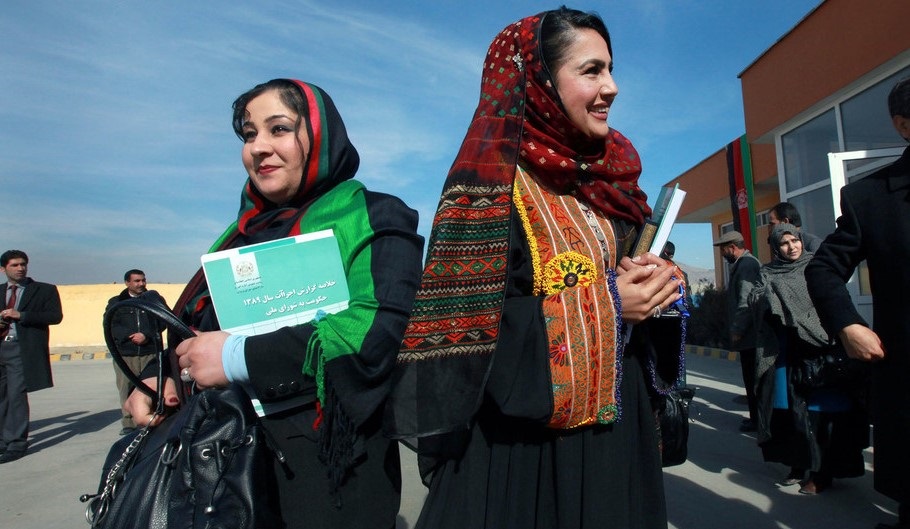
UN Photo/Eric Kanalstein
Women parliamentarians of the Afghan Lower House (Wolesi Jirga or “House of the People”) arrive at their inauguration ceremony in Kabul (2001).
“While we note that a quarter of MPs in the world are women, we see how this still falls far short of representing half the world’s population. Unleashing the full potential of women who make up that 50 percent should be our number one priority.”
The IPU President, Duarte Pacheco, said: “Achieving gender equality in parliaments is a shared responsibility of men and women, and especially of men and women MPs, who by definition, are elected to lead. Only by working together and taking strong action can we move forward and accelerate the pace of change.”
The COVID-19 pandemic had a negative impact on elections and campaigning in 2020. National parliamentary elections were postponed in nearly 20 countries, mainly due to COVID-19, but went ahead in 57 countries overall in 2020, the report says.
Also, the IPU says, the economic downturn caused by the pandemic exacerbated existing gendered socio-economic inequalities, and adversely affected women’s ability to campaign for office and access campaign funding. Online violence against women has become even more widespread and has been a particular threat to women’s participation in public life.





